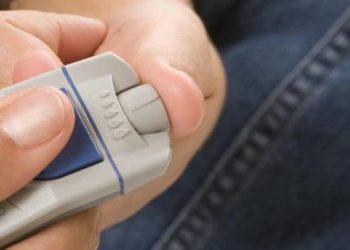TAPS tool may help detect clinically relevant substance use in adult primary care patients
1. The Tobacco, Alcohol, Prescription Medication, and other Substance use (TAPS) tool can screen and access for tobacco, alcohol, and other major drug classes within a single instrument to help detect clinically relevant substance abuse.
2. The TAPS tool provides substance-specific risk information, which is important in directing treatment decisions and delivering patient education but is not provided by the commonly used Drug Abuse Screening Test.
Evidence Rating Level: 2 (Good)
Study Rundown: Substance use is a leading cause of preventable death, and the primary care setting is a good opportunity to identify these problems and help lead patients towards treatment and appropriate interventions. The purpose of TAPS is to provide a substance-specific assessment of risk for those individual who have positive screening results for either tobacco, alcohol, illicit drugs, or non-medical prescription medication use. For tobacco, alcohol, and marijuana, which are substances more commonly used by primary care patients, the TAPS tool was able to help identify substance use with good sensitivity and specificity. For less commonly used substances, sensitivity was lower, but specificity remained high.
Some strengths of the study include the participation of a large number of diverse adult primary care patients and rigorous testing approaches for the self- and interviewer administered versions of the tool. Some limitations of the study include poor precision in drug types with low prevalence. In addition, the research assistants who administered the modified CIDI tool were not blinded to the patient responses on interviewer-administered TAPS tool.
Click to read the study in Annals of Internal Medicine
Relevant Reading: Design of the NIDA clinical trials network validation study of tobacco, alcohol, prescription medications, and substance use/misuse (TAPS) tool
In-Depth [randomized controlled trial]: This study recruited 2000 urban and suburban adults aged 18 years or older from 5 primary care clinics. Participants were randomly assigned to complete either the self-administered TAPS tool first or the interviewer-administered tool first. The participant would then follow up with the other administration format of the tool. Both versions of the TAPS tool were compared to a modified version of the Composite International Diagnostic Interview (CIDI), which is commonly used to assess substance abuse disorder (SUD). Ninety-percent of patients consented to participate in oral fluid testing for drugs afterwards.
For most substances, diagnostic accuracy did not depend on the order of administration. However, for alcohol use, 38.6% of participants compared to 30.7% reported alcohol use depending on if the self-administered tool was completed first or second, respectively. With a cutoff of 1+ to identify problem use, the TAPS tool was found to have a sensitivity of 0.93 (CI, 0.90-0.95) and a specificity of 0.87 (CI, 0.85-0.89) for tobacco and a sensitivity of 0.74 (CI, 0.70-0.78) and specificity of 0.79 (CI, 0.76-0.81) for alcohol. There was a broader range for sensitivity of other drug classes, with a specificity of 0.93 or higher. Further adjustment is needed before use of TAPS as a screener for SUD.
Image: PD
©2016 2 Minute Medicine, Inc. All rights reserved. No works may be reproduced without expressed written consent from 2 Minute Medicine, Inc. Inquire about licensing here. No article should be construed as medical advice and is not intended as such by the authors or by 2 Minute Medicine, Inc.






